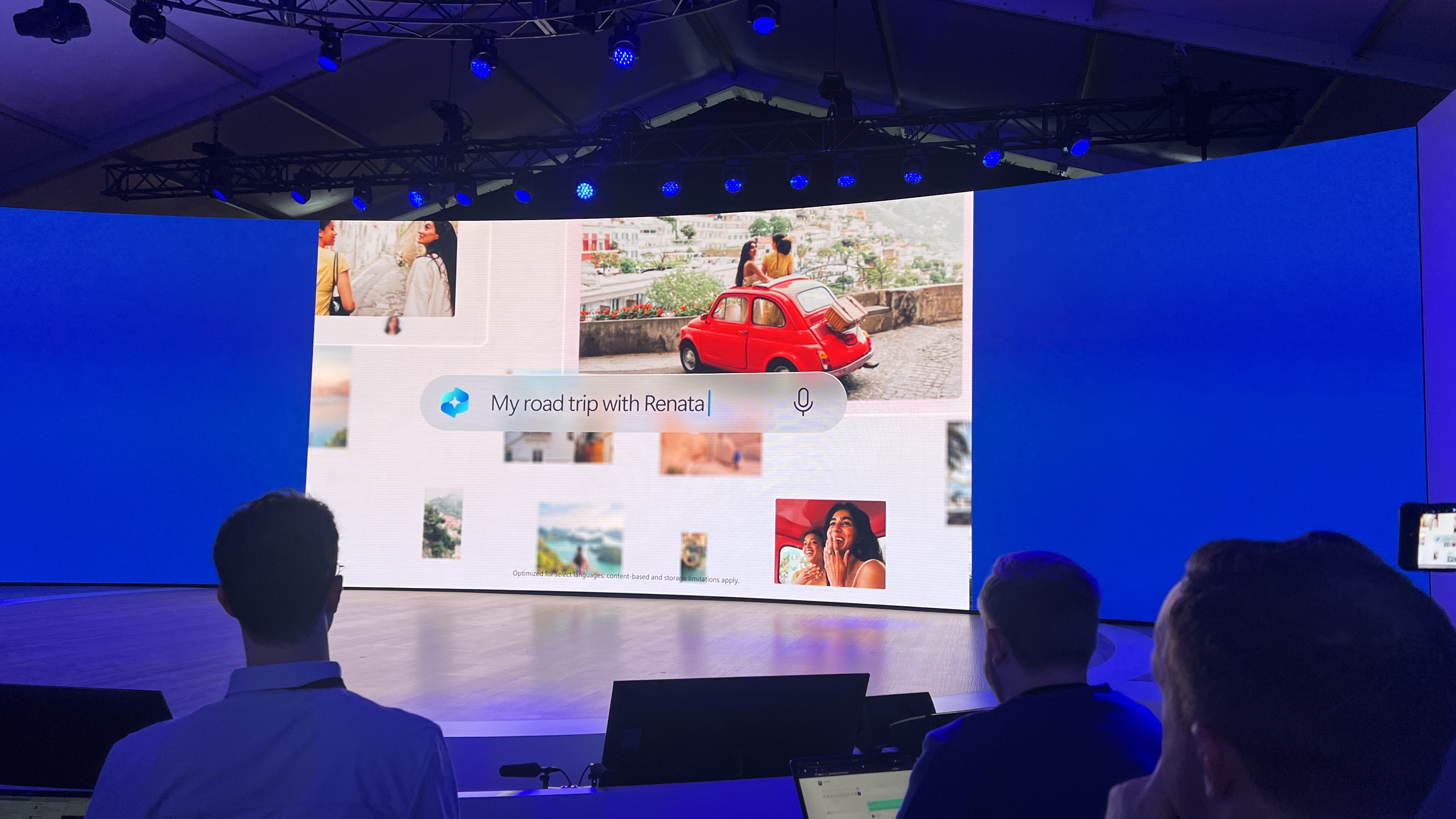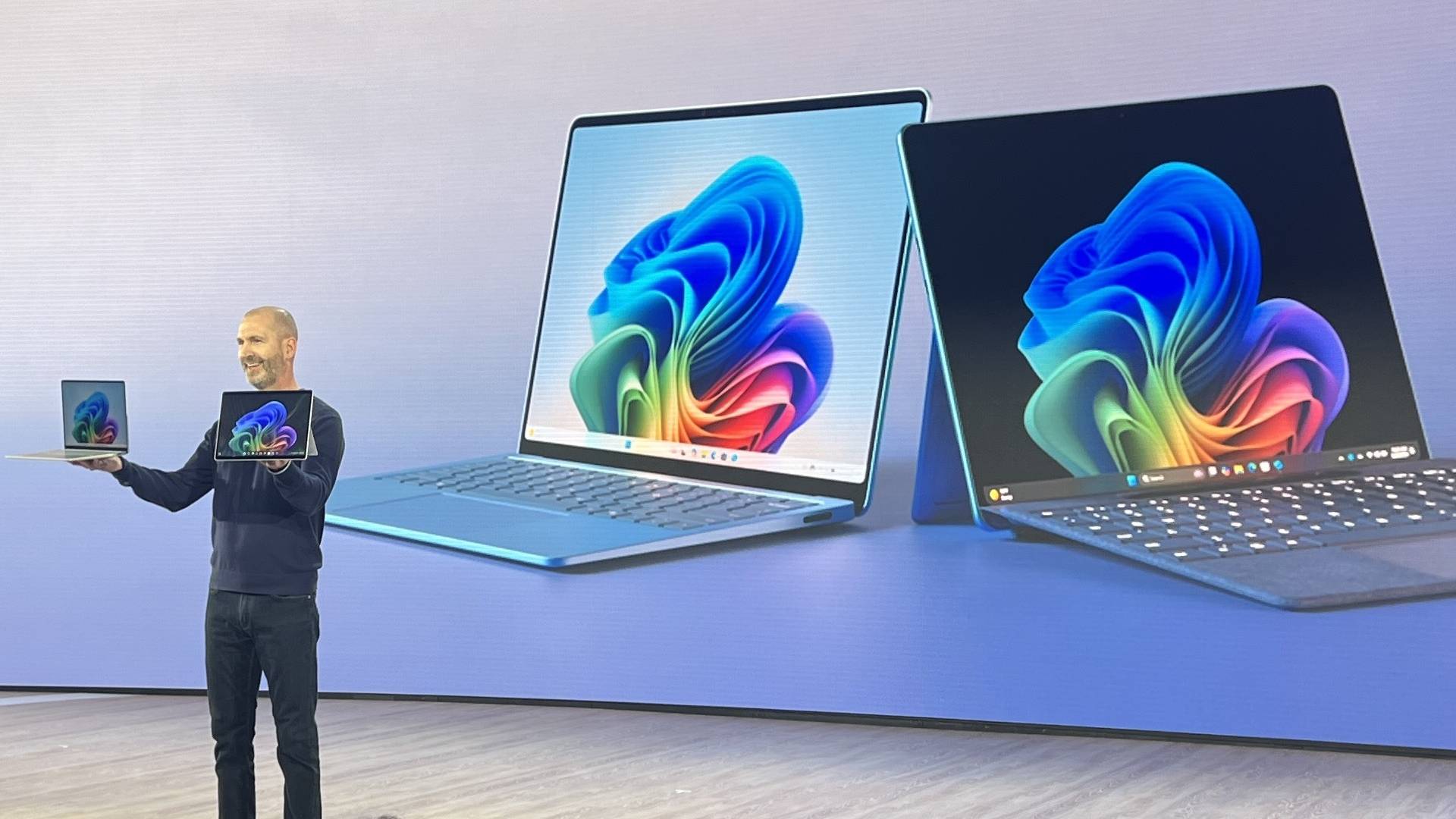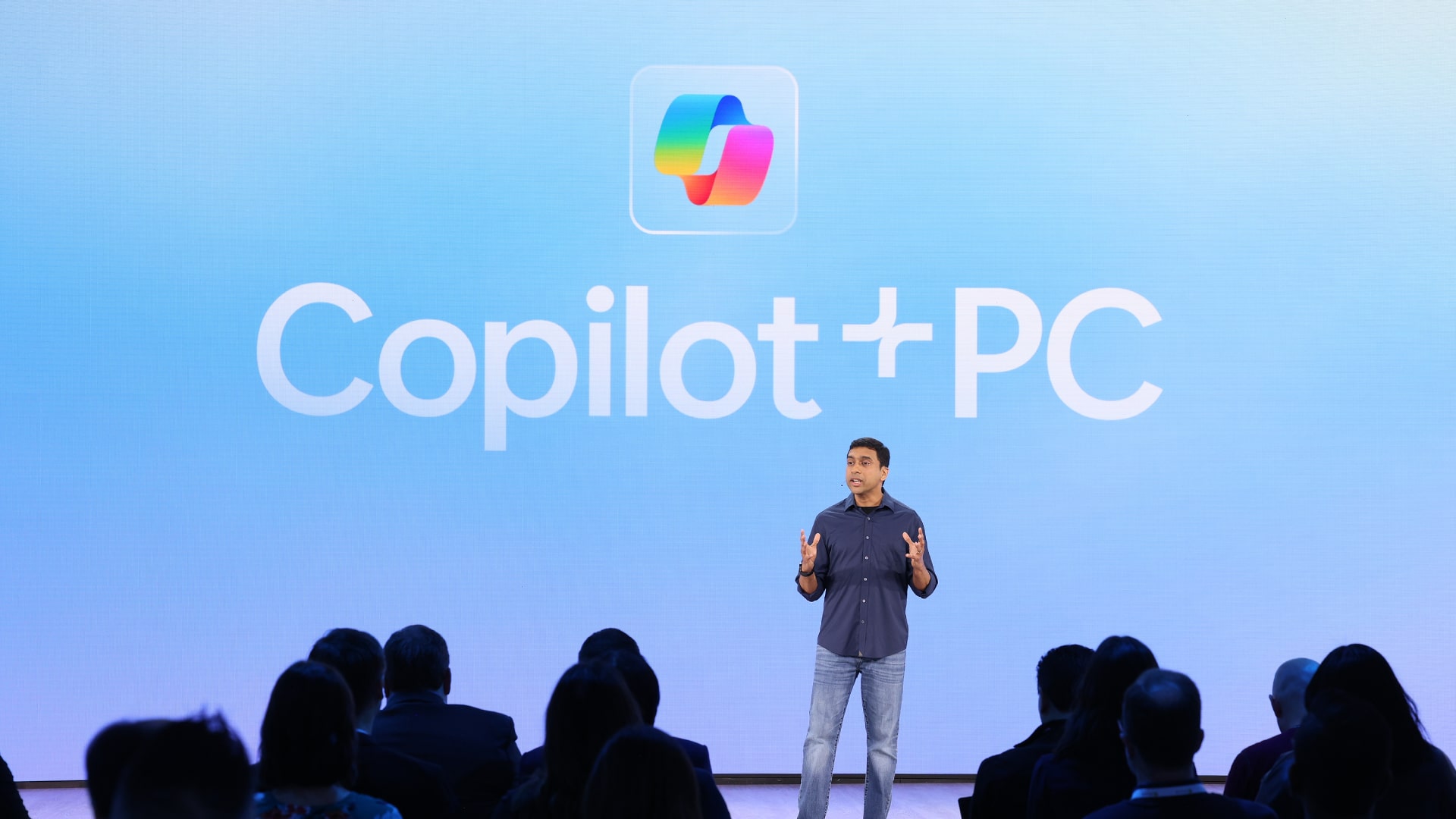Microsoft reveals AI-powered ‘Recall’ feature to transform Windows 11’s searchability, while confirming hardware requirements
Recall: your future AI memory assistant for Windows 11

Microsoft’s annual developer conference, Build, has only just kicked off but we’ve already learned lots of exciting things, including the company showing off a new AI-powered ‘Recall’ feature to be integrated into Copilot+ PCs with Windows 11.
Copilot+ is a new software platform that was introduced yesterday, aiming to infuse Windows 11 with new AI features, ushering in a raft of new devices with more advanced AI functionality.
You’ve doubtless already heard of AI PCs, but the new breed of portables, which are powered by Qualcomm’s Snapdragon X chips with an integrated Neural Processing Unit (NPU), were officially debuted yesterday. Windows 11 Recall will be exclusive to PCs that have Snapdragon X processors as the current generation of Intel and AMD mobile CPUs don’t have a powerful enough NPU to deal with the feature. (It needs an NPU capable of 40 TOPS, or trillions of operations per second).
This isn’t the only hardware requirement that the Recall feature will necessitate, with the full spec requirements being as follows:
- Snapdragon X Elite or X Plus processor
- NPU capable of 40 TOPs
- 225GB storage
- 16GB RAM
While these new Qualcomm chips are the only mobile silicon that can drive the Recall feature (and other AI capabilities in Copilot+ PCs) right now, future generations of Intel and AMD processors will be on board (Intel’s Lunar Lake for example, or AMD’s Strix Point chips).
Windows Latest notes that the above hardware requirements are not only needed to ensure a quality experience - with enough performance to drive snappy responses with these AI features such as Recall - but also for data security reasons.

So, how does Recall work?
In the past we’ve seen reports of a rumored feature, often referred to as ‘AI Explorer,’ that would enable you to search through your past activity on your PC. It looks like this has manifested as the Recall feature, and it’ll be privy to all the activity on your PC including what apps you use, how you use those apps, and what you do in them (for example, conversations in WhatsApp). Recall will record all of this activity going forward, saving snapshots of it in your PC’s local storage.
Get daily insight, inspiration and deals in your inbox
Sign up for breaking news, reviews, opinion, top tech deals, and more.
Additionally, the Settings app will have a dedicated update history section for Recall, and a toggle for new Privacy and Security settings. You’ll be able to update Recall for Windows 11 and other AI features besides using the Windows Update app.
If you’re feeling wary about allowing Recall to access everything, and concerned about having control over what it records and stores, Windows Latest reports that you’ll be able to delete snapshots manually from Recall’s storage, and set Recall to exclude certain apps and websites from its recording activity. In your device’s Settings, you’ll also be able to adjust the time ranges over which Recall stores snapshots, or indeed pause Recall altogether by clicking on its icon in your Taskbar.
In practice, Recall is designed to help you go back in time and find elements of your past activity. So for example, if you previously had a conversation with a colleague on a certain topic, but couldn’t remember the details, you could ask Recall to go and find it within Windows 11. Recall would then comb over your past conversations with the colleague, searching across all of your apps, open tabs within apps, and more besides.
Recall will also be able to help you find files you’ve lost, and to search your browser history, and so forth. You’ll be able to ask for Recall’s assistance using natural language, the way we converse with one another in real life, instead of having to use precise commands.
All of this will run natively on your PC and won’t have to tap the cloud for computing power, meaning your data will be more secure, as everything can be kept locally, and nothing is sent to an external data center. It’s all happening right there on your Copilot+ PC with the help of that powerful NPU.

When can you try Recall for yourself?
The hubbub and excitement of Recall is just one of many things that have been revealed at Microsoft Build 2024 already, but you’ll have to wait until the Windows 11 24H2 update to try the feature (and don’t forget, you’ll need a PC that meets the hardware requirements). The 24H2 update is expected to arrive in September or October, or thereabouts.
If Recall and other AI features, deliver on all that’s promised (or even most of it), we think many people will be impressed and it could convince them to try to adapt to the new way of computing that Microsoft is trying to usher in.
Right now, Copilot isn’t regarded as particularly impressive, but in some ways, that’s due to the hardware needed to facilitate Microsoft’s plans for its AI assistant not being available - until now. We’re excited to get our hands on all these new AI features, as we’re one of those people that floods our PC with media - and we’d imagine Recall could be very handy for us indeed.
YOU MIGHT ALSO LIKE...
Kristina is a UK-based Computing Writer, and is interested in all things computing, software, tech, mathematics and science. Previously, she has written articles about popular culture, economics, and miscellaneous other topics.
She has a personal interest in the history of mathematics, science, and technology; in particular, she closely follows AI and philosophically-motivated discussions.